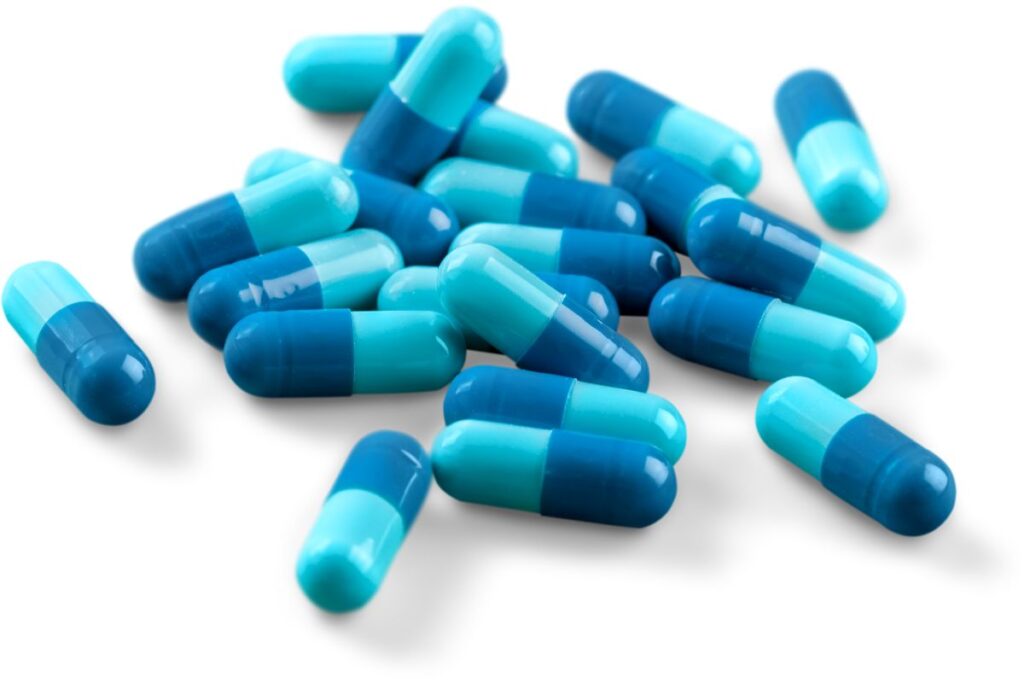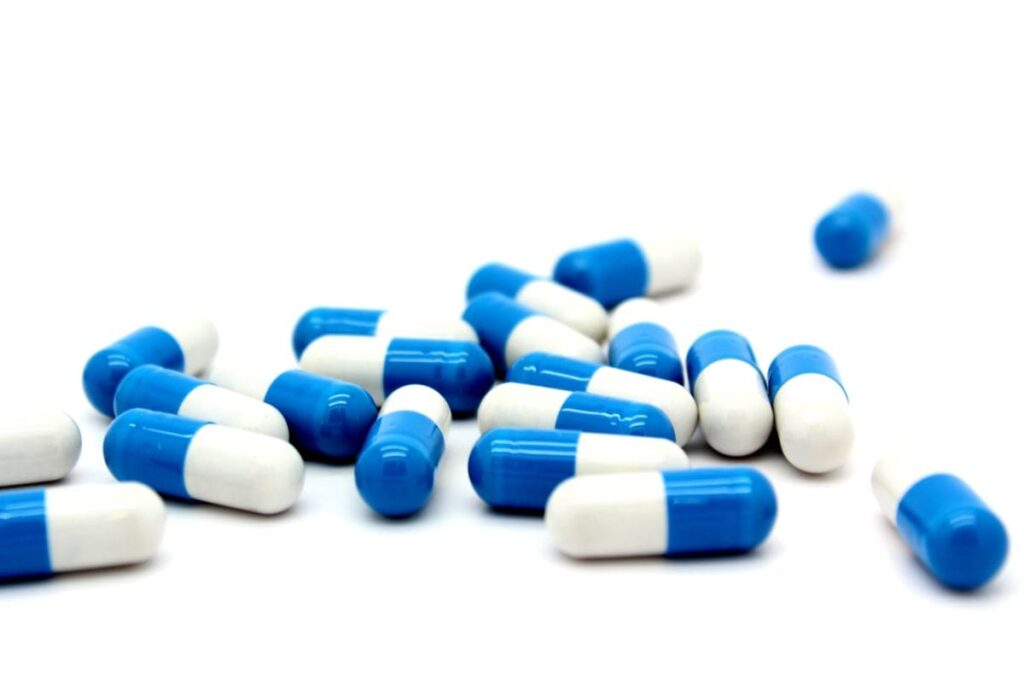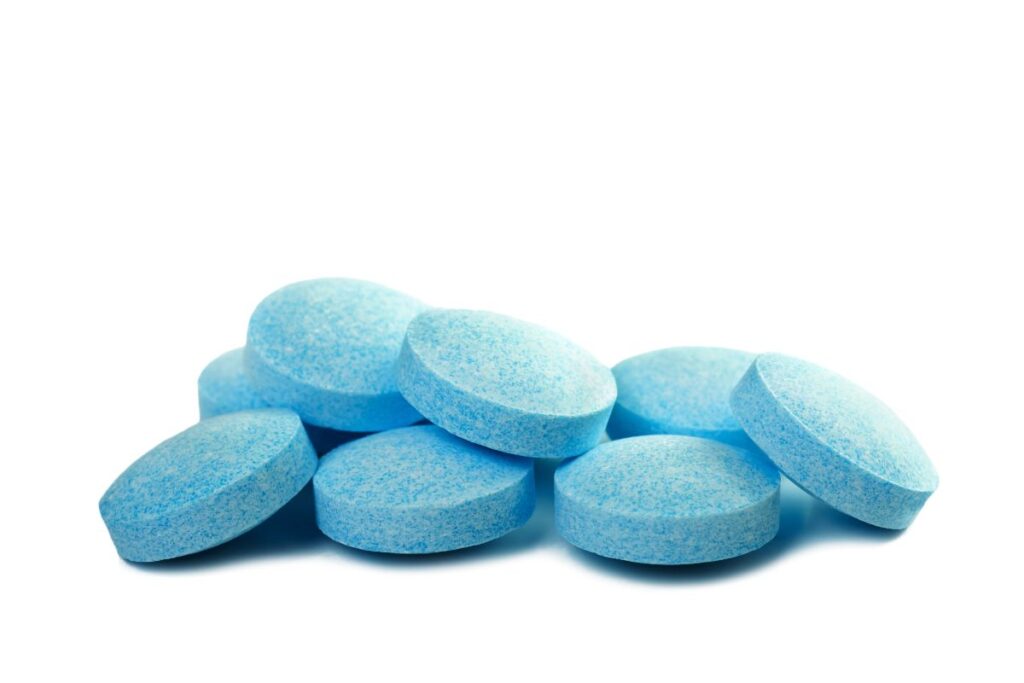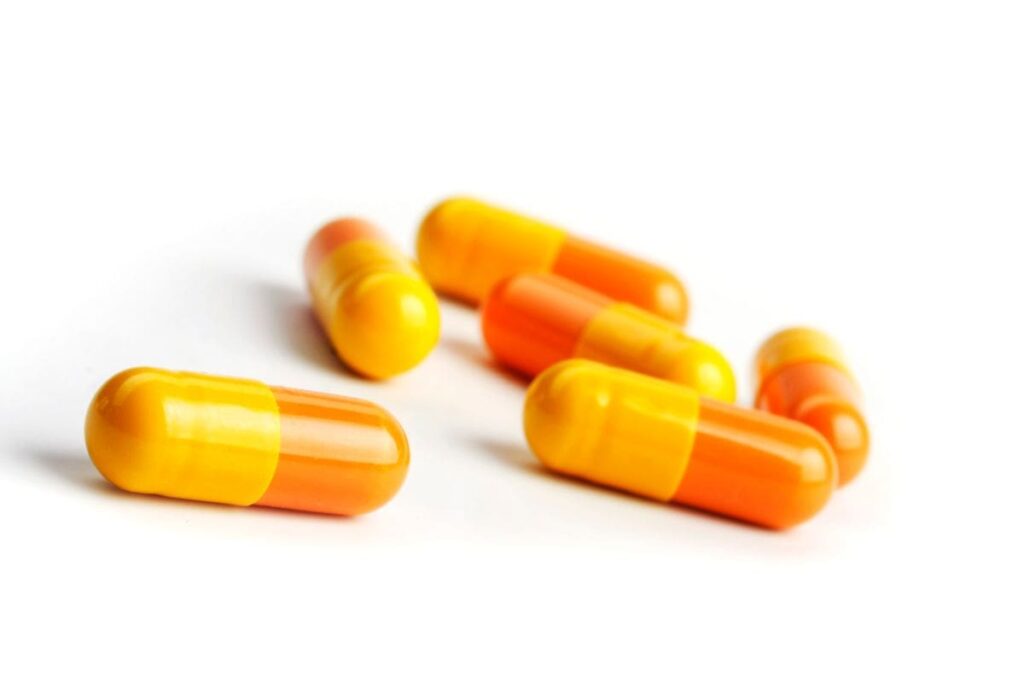Home » Addiction Treatment Programs in Massachusetts » Drug Detox
Drug Detox in Massachusetts
End Drug Addiction Now
The first step to overcoming drug addiction is completing a drug detox program. We’ll help you find a drug detox in Massachusetts to begin your recovery.
Contact Lake Avenue Recovery today to learn more.
Home » Addiction Treatment Programs in Massachusetts » Drug Detox
Drug Detox in Massachusetts
End Drug Addiction
The first step to overcoming drug addiction is completing a drug detox program. We’ll help you find a drug detox in Massachusetts to begin your recovery.
Contact Lake Avenue Recovery today to learn more.

When it comes to overcoming drug addiction, detoxification (detox) is often the first crucial step in the recovery process. For individuals in Massachusetts struggling with substance abuse, seeking professional help at drug detox centers in Massachusetts can make all the difference. In this guide, we’ll walk you through how drug detox works, how to know if you need it, and what to expect throughout the process.
While Lake Ave Recovery does not offer detox services directly, we assist clients in connecting with local detox facilities before they begin their recovery journey at our programs. Once detox is complete, clients can transition into our intensive outpatient and residential programs, ensuring a seamless path to long-term recovery. Contact us today to learn more.
How Do I Know I Need Drug Detox?
Recognizing the need for professional drug detox is often a critical decision in the recovery journey. Individuals may need detox when they experience:
- Physical dependence: If you feel the need to use drugs to function normally or experience withdrawal symptoms when not using, detox may be necessary.
- Inability to quit despite the desire: If you’ve tried to stop using drugs but find it impossible due to cravings or withdrawal, it’s a sign that professional help may be needed.
- Escalating substance use: When the amount or frequency of drug use increases, and the effects become less manageable, detox can help.
- Health deterioration: If your substance use is leading to significant physical or mental health problems, detox is the first step toward healing.
If you or a loved one experience any of these signs, seeking help at one of the drug detox centers in Massachusetts can provide the professional care necessary to safely manage withdrawal and begin recovery.
17.3% of the Population Had an SUD in the Past Year
According to the 2022 National Survey on Drug Use and Health (NSDUH), 48.7 million people aged 12 or older had a substance use disorder (SUD) in the past year. However, not everyone who needs treatment gets it.
At Lake Avenue Recovery, we’re here to help you find treatment solutions that work for you or your loved one. We’ll connect you to detox centers in Massachusetts to begin your recovery.
How Does Drug Detox in Massachusetts Work?
The goal of detox is to safely manage withdrawal symptoms when an individual stops taking drugs. Detoxification programs are typically medically monitored and offer support in a controlled environment.
Here’s how drug detox generally works:
- Initial Assessment: Upon arrival at a detox center, patients undergo a comprehensive assessment that includes a physical exam, psychological evaluation, and a review of medical history.
- Stabilization: The focus here is on keeping the individual physically stable during the withdrawal process. Medications may be prescribed to manage symptoms, and medical staff monitor patients around the clock.
- Transition to Treatment: Once the detox process is complete, patients are encouraged to continue their recovery in a structured treatment program. Lake Ave Recovery helps clients transition to our intensive outpatient or residential programs after completing detox.
You are not alone. You deserve to get help.
Lake Avenue Recovery is an industry leader in addiction treatment in Massachusetts. Our team of top medical experts specialize in dual diagnosis treatment and are committed to ensuring that each patient is treated as an individual. Call us today, we’re available 24/7.
Types of Drugs That Require Medically-Monitored Detox
Not all substances require medically-monitored detox, but many drugs pose significant withdrawal risks that make professional detox necessary. Some of the most common substances requiring detox at drug detox centers in Massachusetts include:
- Opioids (heroin, prescription painkillers): Opioid withdrawal can be extremely uncomfortable and often requires medication-assisted treatment to manage symptoms.
- Alcohol: Alcohol withdrawal can lead to life-threatening complications such as seizures or delirium tremens (DTs).
- Benzodiazepines: Withdrawal from these sedatives can be dangerous, leading to seizures or psychosis without proper medical supervision.
- Stimulants (cocaine, methamphetamine): While stimulant withdrawal is rarely life-threatening, symptoms like depression, fatigue, and intense cravings often require professional care.
- Marijuana: While withdrawal symptoms are typically milder, some individuals may still benefit from detox due to irritability, anxiety, and insomnia.
What Will I Experience During Detox?
The detox experience varies depending on the substance used, the length of use, and individual health factors. Generally, patients can expect the following:
- Withdrawal symptoms: Most people will experience physical and psychological symptoms as their body adjusts to life without drugs. Symptoms can range from mild (such as anxiety and insomnia) to severe (such as seizures or hallucinations).
- Medical monitoring: Medical professionals will track your vital signs, administer medications to reduce discomfort, and ensure your safety.
- Emotional support: Detox can be an emotionally trying time, and most programs provide counseling and support to help patients manage emotional stress.
At drug detox centers in Massachusetts, these services are offered in a safe, supportive environment to ease the detox process
Drug Withdrawal Symptoms
Drug withdrawal symptoms depend on the substance, but some common symptoms experienced during detox may include:
- Opioids: Muscle aches, sweating, agitation, insomnia, nausea, vomiting, and diarrhea.
- Alcohol: Tremors, seizures, confusion, anxiety, high blood pressure, and, in severe cases, delirium tremens.
- Benzodiazepines: Anxiety, panic attacks, seizures, hallucinations, and irritability.
- Stimulants: Fatigue, depression, nightmares, increased appetite, and cravings.
Due to the potentially severe nature of these symptoms, it’s essential to undergo detox at a drug detox center in Massachusetts to ensure safe management of the withdrawal process.
Therapies Utilized During Drug Detox
Many drug detox centers in Massachusetts offer a variety of therapies to support individuals during detox. These therapies not only manage the physical symptoms but also address the psychological challenges that arise.
Common therapies include:
- Medication-Assisted Treatment (MAT): Medications such as methadone, buprenorphine, or naltrexone may be used to ease withdrawal symptoms and reduce cravings.
- Cognitive Behavioral Therapy (CBT): Detox can be emotionally challenging, and therapy can help individuals understand and manage their thoughts and behaviors during this process.
- Holistic Therapies: Some detox centers incorporate holistic approaches like yoga, meditation, and acupuncture to promote relaxation and reduce stress during detox.
- Nutritional Support: A balanced diet and proper hydration can help the body recover more effectively during detox.
How Long Does Drug Detox in Massachusetts Last?
The length of drug detox varies depending on the substance and individual factors, such as how long the person has been using the drug. In general, detox lasts anywhere from a few days to two weeks.
Here’s a rough breakdown:
- Opioid detox: 5 to 10 days.
- Alcohol detox: 3 to 7 days.
- Benzodiazepine detox: 7 to 14 days.
- Stimulant detox: 3 to 10 days.
After completing detox, it’s important to transition into a structured treatment program. At Lake Ave Recovery, we help clients make this transition by connecting them with our comprehensive treatment services, including outpatient programs and aftercare.
Recommended: Fentanyl Withdrawal: How Long Does It Take to Detox From Fentanyl?
Does Insurance Cover Drug Detox?
Many health insurance plans cover drug detox, though coverage may vary based on the provider and plan. Massachusetts law requires most insurance providers to offer coverage for substance use disorder treatment, including detox.
It’s always recommended to check with your insurance provider about your specific coverage. Most drug detox centers in Massachusetts have staff who can assist with verifying insurance benefits and help navigate the financial aspects of treatment.
We also work with some of the most popular insurance carriers, including:
Get Help Today
If you or a loved one is struggling with substance abuse and may need detox, don’t wait to seek help. While Lake Ave Recovery does not provide detox services directly, we assist our clients in finding reputable drug detox centers in Massachusetts. Detox is a crucial first step, and we ensure that you have a safe, medically-monitored environment to begin your recovery.
After detox, our programs are designed to support long-term sobriety, with customized treatment plans tailored to each individual’s needs. Reach out today to learn more about our services or to find the right detox center to begin your journey toward a healthier, drug-free life.
Worcester, MA
Our Worcester, MA location provides evidence-based treatment modalities, our luxury facility strives to create the most peaceful atmosphere to help our patients recover in the best way.
Gardner, MA
We offer several levels of care at our program in Gardner, Massachusetts. Our outpatient treatment means each person travels to our facility for their treatment sessions and then returns to their homes.
When it comes to overcoming drug addiction, detoxification (detox) is often the first crucial step in the recovery process. For individuals in Massachusetts struggling with substance abuse, seeking professional help at drug detox centers in Massachusetts can make all the difference. In this guide, we’ll walk you through how drug detox works, how to know if you need it, and what to expect throughout the process.
While Lake Ave Recovery does not offer detox services directly, we assist clients in connecting with local detox facilities before they begin their recovery journey at our programs. Once detox is complete, clients can transition into our intensive outpatient and residential programs, ensuring a seamless path to long-term recovery. Contact us today to learn more.
How Do I Know I Need Drug Detox?
Recognizing the need for professional drug detox is often a critical decision in the recovery journey. Individuals may need detox when they experience:
- Physical dependence: If you feel the need to use drugs to function normally or experience withdrawal symptoms when not using, detox may be necessary.
- Inability to quit despite the desire: If you’ve tried to stop using drugs but find it impossible due to cravings or withdrawal, it’s a sign that professional help may be needed.
- Escalating substance use: When the amount or frequency of drug use increases, and the effects become less manageable, detox can help.
- Health deterioration: If your substance use is leading to significant physical or mental health problems, detox is the first step toward healing.
If you or a loved one experience any of these signs, seeking help at one of the drug detox centers in Massachusetts can provide the professional care necessary to safely manage withdrawal and begin recovery.
17.3% of the Population Had an SUD in the Past Year
According to the 2022 National Survey on Drug Use and Health (NSDUH), 48.7 million people aged 12 or older had a substance use disorder (SUD) in the past year. However, not everyone who needs treatment gets it.
At Lake Avenue Recovery, we’re here to help you find treatment solutions that work for you or your loved one. We’ll connect you to detox centers in Massachusetts to begin your recovery.
How Does Drug Detox in Massachusetts Work?
The goal of detox is to safely manage withdrawal symptoms when an individual stops taking drugs. Detoxification programs are typically medically monitored and offer support in a controlled environment.
Here’s how drug detox generally works:
- Initial Assessment: Upon arrival at a detox center, patients undergo a comprehensive assessment that includes a physical exam, psychological evaluation, and a review of medical history.
- Stabilization: The focus here is on keeping the individual physically stable during the withdrawal process. Medications may be prescribed to manage symptoms, and medical staff monitor patients around the clock.
- Transition to Treatment: Once the detox process is complete, patients are encouraged to continue their recovery in a structured treatment program. Lake Ave Recovery helps clients transition to our intensive outpatient or residential programs after completing detox.
You are not alone. You deserve to get help.
Lake Avenue Recovery is an industry leader in addiction treatment in Massachusetts. Our team of top medical experts specialize in dual diagnosis treatment and are committed to ensuring that each patient is treated as an individual. Call us today, we’re available 24/7.
Types of Drugs That Require Medically-Monitored Detox
Not all substances require medically-monitored detox, but many drugs pose significant withdrawal risks that make professional detox necessary. Some of the most common substances requiring detox at drug detox centers in Massachusetts include:
- Opioids (heroin, prescription painkillers): Opioid withdrawal can be extremely uncomfortable and often requires medication-assisted treatment to manage symptoms.
- Alcohol: Alcohol withdrawal can lead to life-threatening complications such as seizures or delirium tremens (DTs).
- Benzodiazepines: Withdrawal from these sedatives can be dangerous, leading to seizures or psychosis without proper medical supervision.
- Stimulants (cocaine, methamphetamine): While stimulant withdrawal is rarely life-threatening, symptoms like depression, fatigue, and intense cravings often require professional care.
- Marijuana: While withdrawal symptoms are typically milder, some individuals may still benefit from detox due to irritability, anxiety, and insomnia.
What Will I Experience During Detox?
The detox experience varies depending on the substance used, the length of use, and individual health factors. Generally, patients can expect the following:
- Withdrawal symptoms: Most people will experience physical and psychological symptoms as their body adjusts to life without drugs. Symptoms can range from mild (such as anxiety and insomnia) to severe (such as seizures or hallucinations).
- Medical monitoring: Medical professionals will track your vital signs, administer medications to reduce discomfort, and ensure your safety.
- Emotional support: Detox can be an emotionally trying time, and most programs provide counseling and support to help patients manage emotional stress.
At drug detox centers in Massachusetts, these services are offered in a safe, supportive environment to ease the detox process
Drug Withdrawal Symptoms
Drug withdrawal symptoms depend on the substance, but some common symptoms experienced during detox may include:
- Opioids: Muscle aches, sweating, agitation, insomnia, nausea, vomiting, and diarrhea.
- Alcohol: Tremors, seizures, confusion, anxiety, high blood pressure, and, in severe cases, delirium tremens.
- Benzodiazepines: Anxiety, panic attacks, seizures, hallucinations, and irritability.
- Stimulants: Fatigue, depression, nightmares, increased appetite, and cravings.
Due to the potentially severe nature of these symptoms, it’s essential to undergo detox at a drug detox center in Massachusetts to ensure safe management of the withdrawal process.
Therapies Utilized During Drug Detox
Many drug detox centers in Massachusetts offer a variety of therapies to support individuals during detox. These therapies not only manage the physical symptoms but also address the psychological challenges that arise.
Common therapies include:
- Medication-Assisted Treatment (MAT): Medications such as methadone, buprenorphine, or naltrexone may be used to ease withdrawal symptoms and reduce cravings.
- Cognitive Behavioral Therapy (CBT): Detox can be emotionally challenging, and therapy can help individuals understand and manage their thoughts and behaviors during this process.
- Holistic Therapies: Some detox centers incorporate holistic approaches like yoga, meditation, and acupuncture to promote relaxation and reduce stress during detox.
- Nutritional Support: A balanced diet and proper hydration can help the body recover more effectively during detox.
How Long Does Drug Detox in Massachusetts Last?
The length of drug detox varies depending on the substance and individual factors, such as how long the person has been using the drug. In general, detox lasts anywhere from a few days to two weeks.
Here’s a rough breakdown:
- Opioid detox: 5 to 10 days.
- Alcohol detox: 3 to 7 days.
- Benzodiazepine detox: 7 to 14 days.
- Stimulant detox: 3 to 10 days.
After completing detox, it’s important to transition into a structured treatment program. At Lake Ave Recovery, we help clients make this transition by connecting them with our comprehensive treatment services, including outpatient programs and aftercare.
Recommended: Fentanyl Withdrawal: How Long Does It Take to Detox From Fentanyl?
Does Insurance Cover Drug Detox?
Many health insurance plans cover drug detox, though coverage may vary based on the provider and plan. Massachusetts law requires most insurance providers to offer coverage for substance use disorder treatment, including detox.
It’s always recommended to check with your insurance provider about your specific coverage. Most drug detox centers in Massachusetts have staff who can assist with verifying insurance benefits and help navigate the financial aspects of treatment.
We also work with some of the most popular insurance carriers, including:
Get Help Today
If you or a loved one is struggling with substance abuse and may need detox, don’t wait to seek help. While Lake Ave Recovery does not provide detox services directly, we assist our clients in finding reputable drug detox centers in Massachusetts. Detox is a crucial first step, and we ensure that you have a safe, medically-monitored environment to begin your recovery.
After detox, our programs are designed to support long-term sobriety, with customized treatment plans tailored to each individual’s needs. Reach out today to learn more about our services or to find the right detox center to begin your journey toward a healthier, drug-free life.
Worcester, MA
Our Worcester, MA location provides evidence-based treatment modalities, our luxury facility strives to create the most peaceful atmosphere to help our patients recover in the best way.
Gardner, MA
We offer several levels of care at our program in Gardner, Massachusetts. Our outpatient treatment means each person travels to our facility for their treatment sessions and then returns to their homes.
Learn more About our Treatment Options
The Dangers of Mixing Doxycycline & Alcohol
So your doctor just prescribed you doxycycline, and now you’re wondering: "Can...
How Long Does Vyvanse Stay In Your System?
Vyvanse is a prescription medication often used to treat ADHD and binge...
Feening For Drugs: What Does It Mean?
If you’ve ever heard someone say they’re "feening for drugs," they’re talking...
What is Blue Xanax?
Blue Xanax is a prescription medication used to treat anxiety and panic...
The Dangers of Effexor
Effexor (venlafaxine) is a widely used antidepressant that helps treat depression, anxiety,...
Mental Health Statistics in Massachusetts: Facts & How to Get Help
If you or someone you know is struggling with mental health, you’re...
Instant Insurance Verification
Same-Day Clinical Assessment
Free &
Confidential
Start Your Journey to Recovery Call Now.
We have a longstanding foundation in the treatment and recovery community
Lake Avenue Recovery is a state licensed and Joint Commission accredited organization committed to promoting, maintaining, and restoring the dignity, well-being and mental health for those with substance use disorders and their families serving greater Worcester county and beyond.
- 132 Years Clinical Excellence
- 105 Years Recovery Experience
- 8:1 Ratio Client to Staff
- 12 Publications on Alcohol and Drug Use






